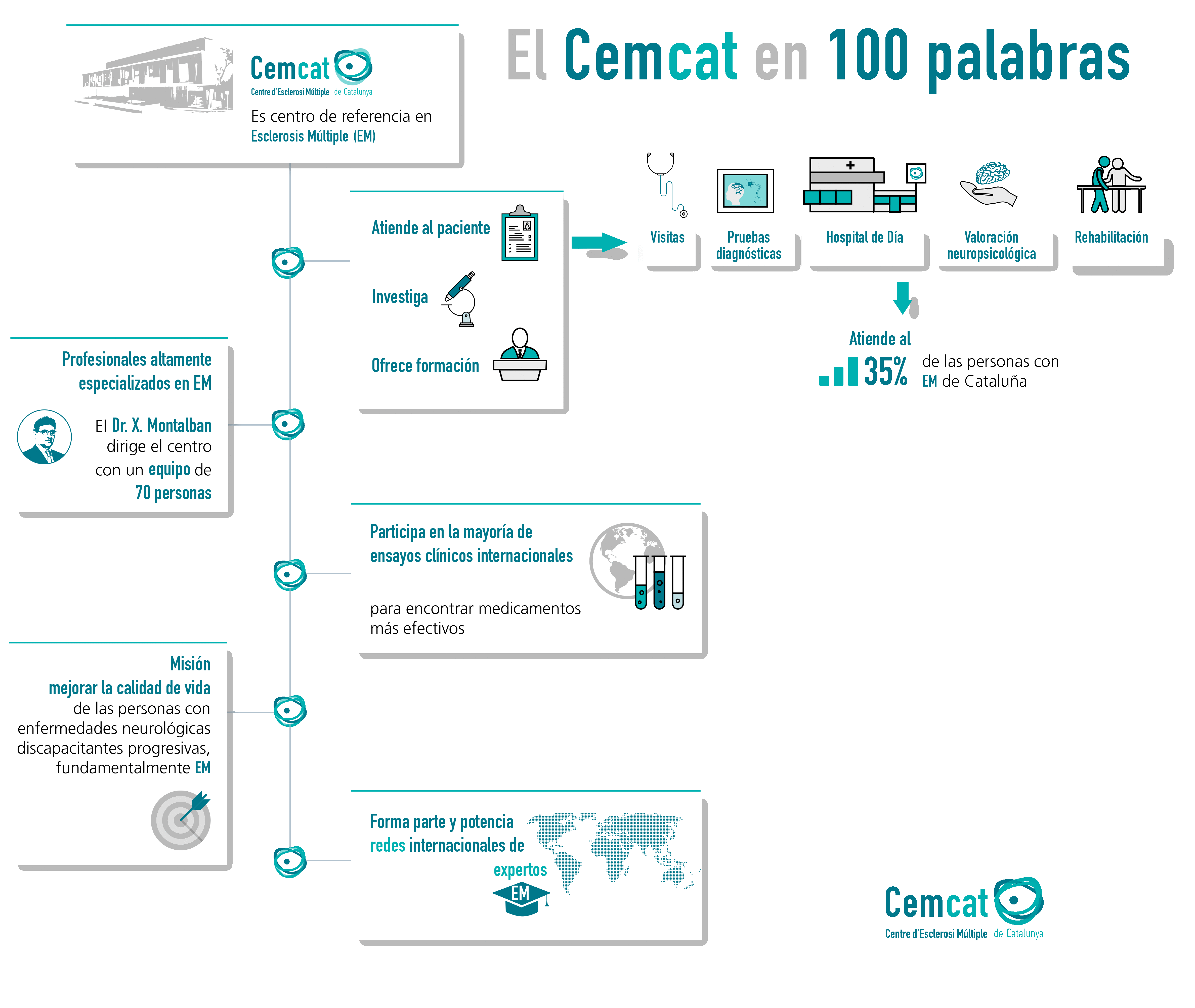You are here
"Nursing is the hand that the patient can hold on to"
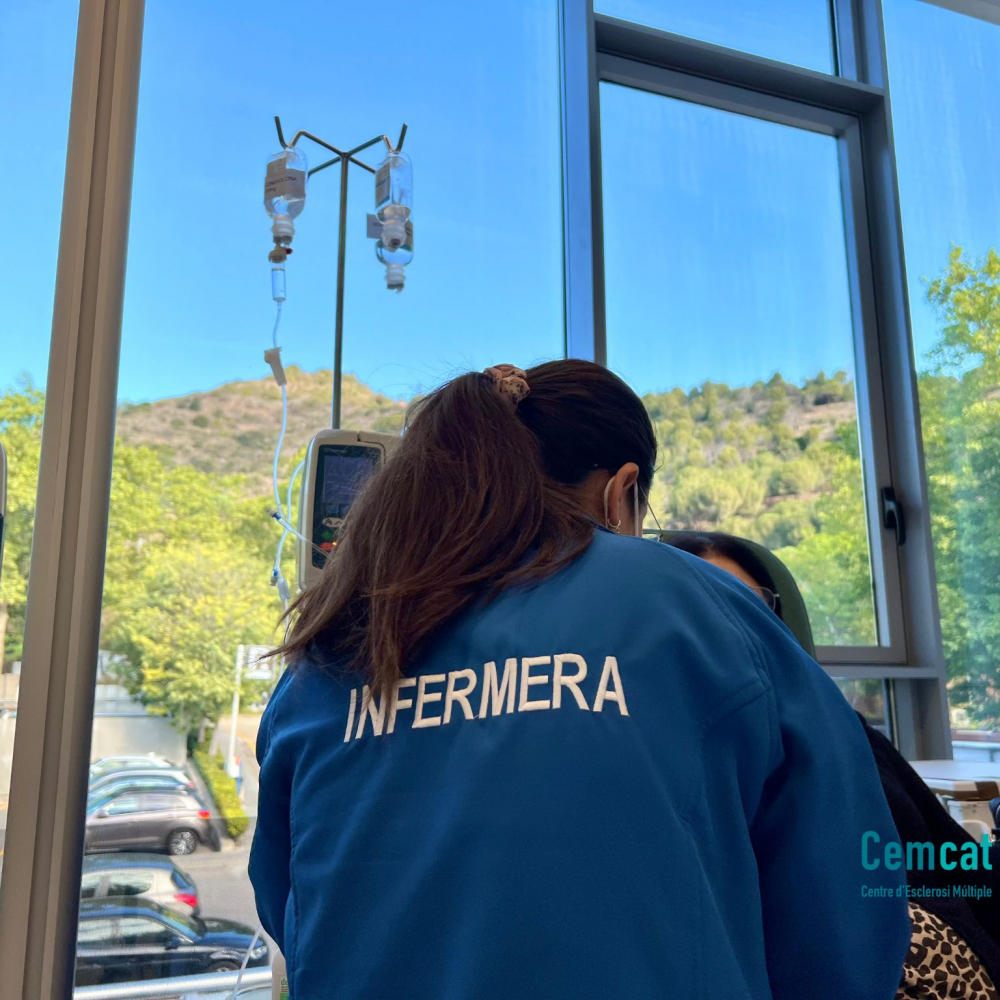
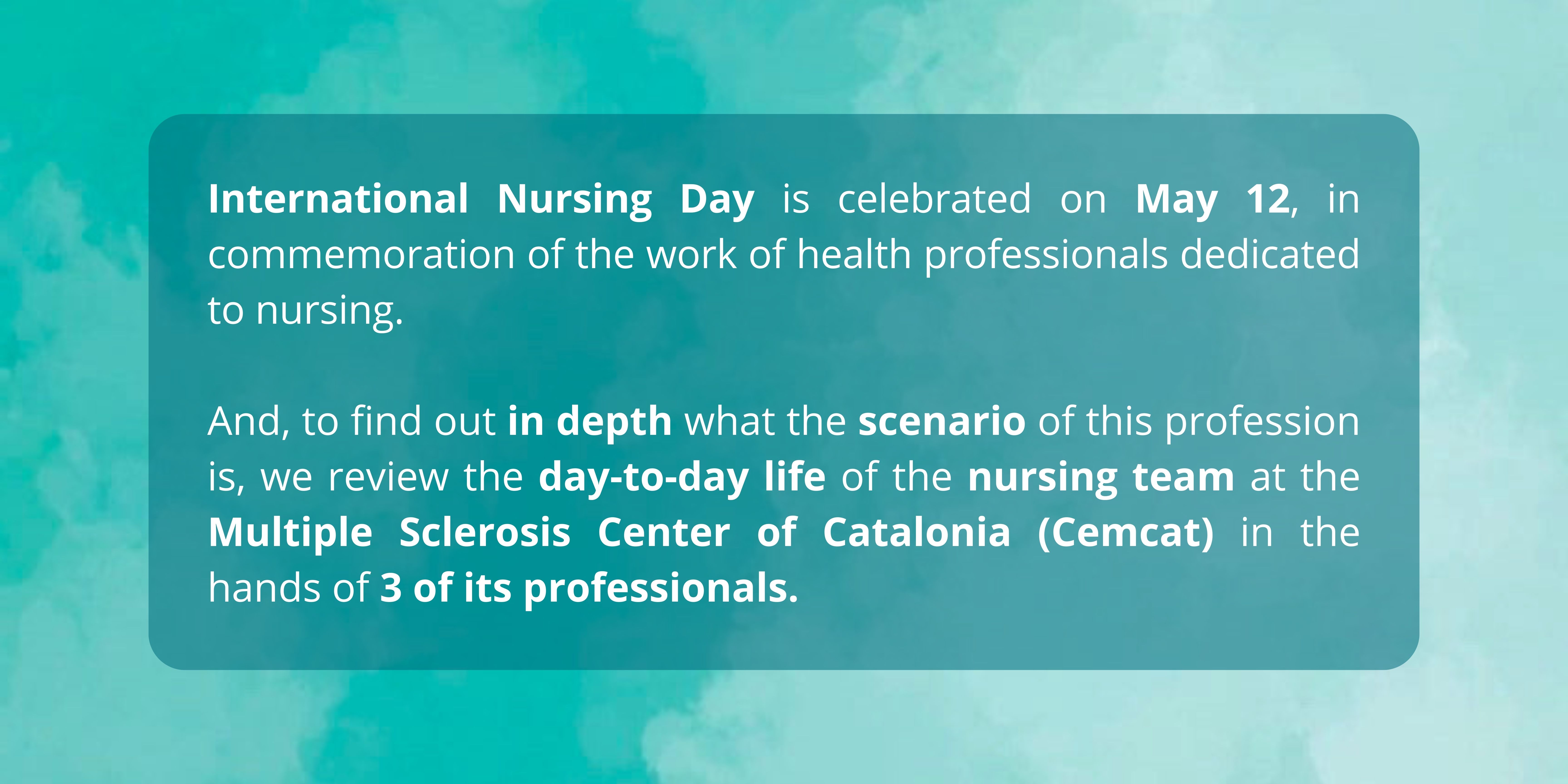
The Multiple Sclerosis Center of Catalonia (Cemcat) is a point of reference for people living with this disease. Thousands of users come to Cemcat every day where they receive an accurate diagnosis and learn to live with Multiple Sclerosis and manage the diversity of symptoms that can arise from it. It is precisely in this context that the role of the nurses who make up the center's team comes to play a crucial role in treatment, advice and nursing assessment without forgetting the support of people living with MS and their families, who often find themselves immersed in a new scenario with a certain degree of uncertainty, in which they have to consider a new lifestyle.
It is at this point when, together with specialist doctors, professionals such as Miguel Ángel Robles, clinical nurse and coordinator of the Cemcat Infirmary, come into play. "We have to be the straw man of direct attention to the person, and those who end up having a 360 view of each patient's perspective". And the tasks performed by the nursing team go far beyond administering and applying treatments to patients affected by Multiple Sclerosis: "the bulk of our work lies in accompanying and guiding the patient in the management of the Multiple Sclerosis so that the disease does not take over or become the sole focus of his life”.
"It is a disease that can have a high degree of stigma, and with prisms that fully affect the person's self-esteem. We have to establish a real relationship with the patient and break taboos.”

Multiple Sclerosis is a chronic inflammatory disease that affects the central nervous system (brain and spinal cord) and is characterized by the appearance of lesions in myelin, a fatty layer that surrounds nerve fibers and is responsible for facilitating the transmission of electrical signals between the brain and the rest of the body, and thus allow us, for example, to move, speak or have a precise vision.
In essence, it is a condition that can attack and compromise the psychomotor skills and control of any part of the body, causing alterations in the tasks of daily life and, consequently, generating an added social burden for the patient and his family. This is how Samuel Sánchez, nurse and physiotherapist from the Cemcat neurorehabilitation team explains it: "In some more advanced phases, disorders in the functioning of the sphincters, or the inability to control urine, for example, are a symptom that consider hidden Socially, it is not well accepted, and that is why the patient does not tell his immediate surroundings".
"In the initial stages, patients do not verbalize some symptoms, such as changes in urination. They hide it out of shame.”
They are a set of symptoms, therefore, that significantly impact and alter the patient's daily life. "A patient with a sphincter problem stops going to a family lunch for fear of leaking urine," explains Samuel. To pave the way for the patient and help him mitigate alterations in his daily routine and activities, one of the primary missions of Cemcat nurses is to provide effective techniques and tools so that they can preserve and gain autonomy, and thus allow that they are "as independent as possible" and that "the disease is not the only focus of their day-to-day life. "If we manage to minimize it, this is what gives meaning to the nursing work we do at Cemcat".
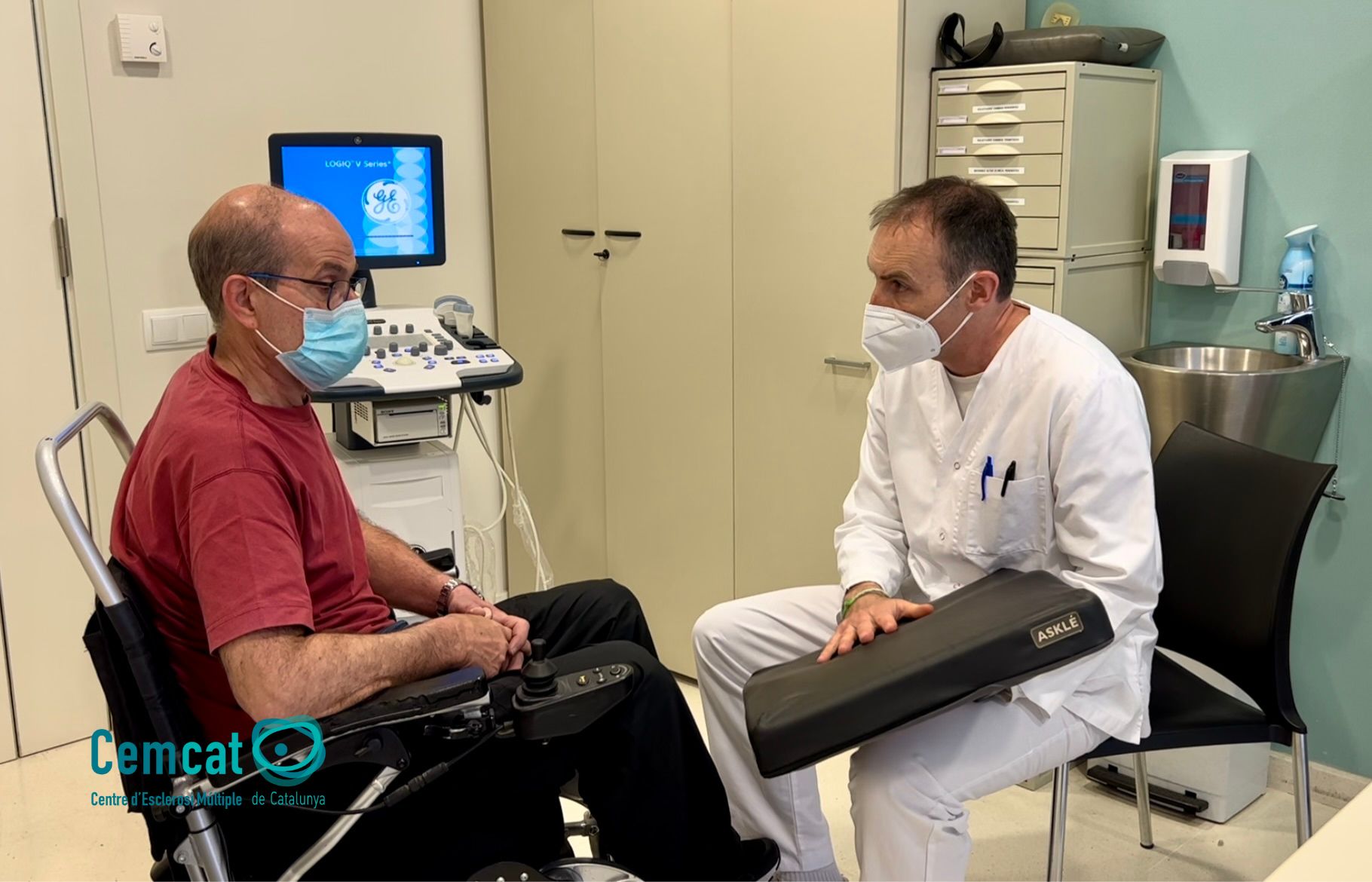
Multiple Sclerosis is a highly complex chronic disease that, today, still has no cure and, often the vast majority of the time, has a major emotional impact on the person who suffers from it and their family. "Emotionally, it's a difficult disease because of the uncertainty it generates not knowing how it will evolve. There are no set patterns. And this distresses the patient", explains Samuel.
For this reason, commitment and trust are two key concepts to play in the daily fight against the symptoms of this chronic disease, both on the part of the patient and the specialist health personnel who attend to him. "We are the healthcare professional who is most directly in contact with the patient on a continuous and close basis", underlines Miguel Ángel.
"When you don't know what to do, you call your nurse."
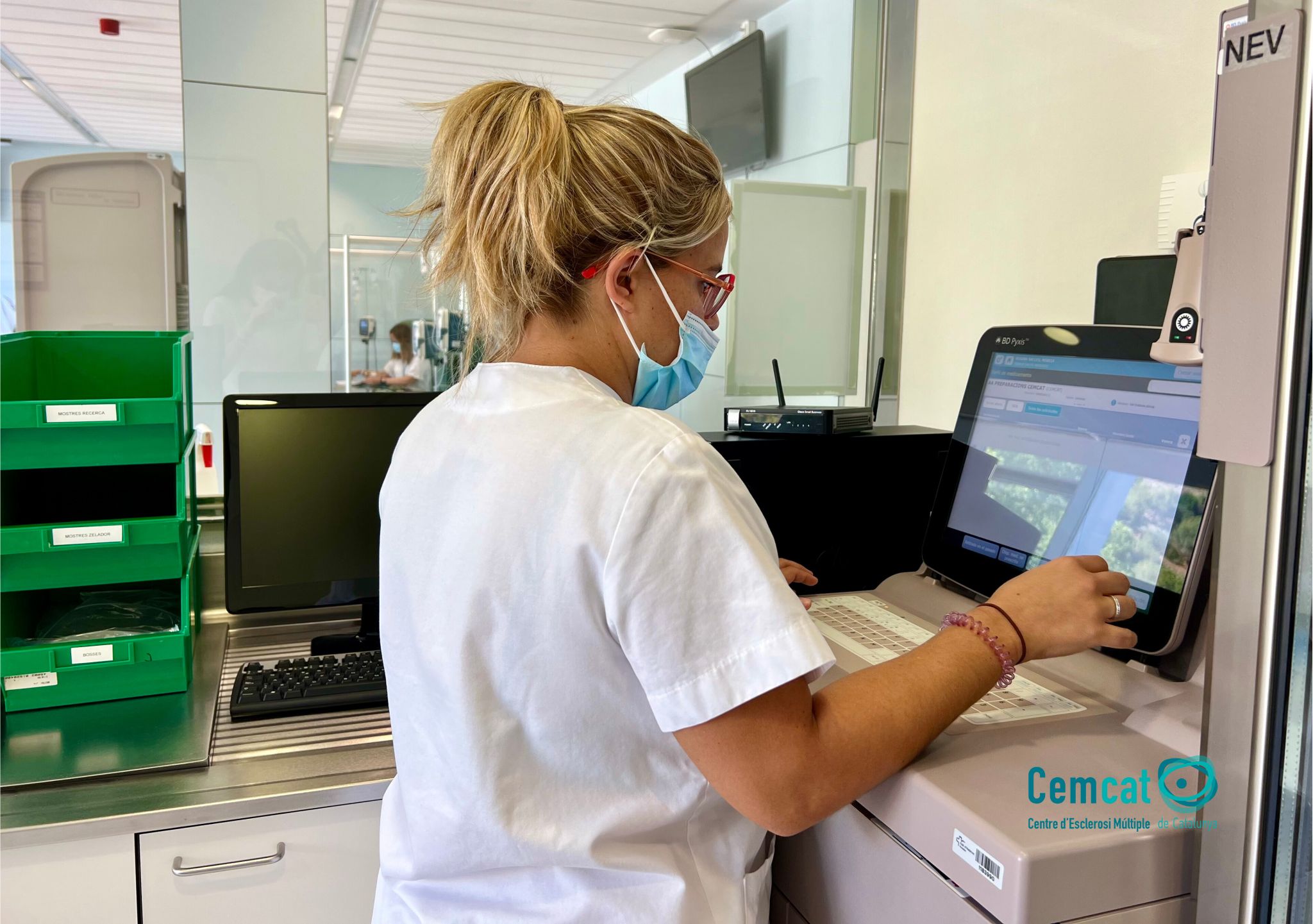
But this emotional embrace that provides the role of nursing is an exercise that can also leave a mark on the professional himself. And the relationship that is forged between the healthcare staff and the patient with Multiple Sclerosis to whom they provide medical care ends up becoming a deep and sincere bond lasting over the years.
This is how Mireia Resina, nurse coordinator of Cemcat's Clinical Trials area, defines it, who describes the difficulty of emotional management implicit in the frequent and regular treatment with the patient: "It depends on which person arrives, and which one is his case, but you always make it yours on a professional level. And sometimes you know you are doing everything you can to help them, but in some cases the progress is not what people living with MS expect. We must know how to help manage the possible frustration.".
The role of nurses is essential to understanding and looking after the patient's emotional state. Miguel Ángel Robles puts on the table the importance of "observing and asking", and emphasizes that "you have to analyze the person in front of you, see how they react and gauge what they need to be able to help them". A care task, therefore, in which Miguel Ángel emphasizes that "it is vital to establish a relationship with each patient that is honest and sincere. We have to lose the fear of asking and thus help her navigate this disease".
"Sometimes you don't have to say anything. Just being there, by their side.”
In fact, Mireia Resina emphasizes that the work of nurses is essential in the circuit of treatments that the Cemcat user receives, and they become a point of unconditional support for the patient: "we are an accessible, dynamic and open point", she adds "there are patients who verbalize things to you that they only tell us, because we give them confidence".
“As nurses, we don't sit in front of the patient. We sit next to them. And, sometimes, you need someone to listen to you and say: "I'm here with you".
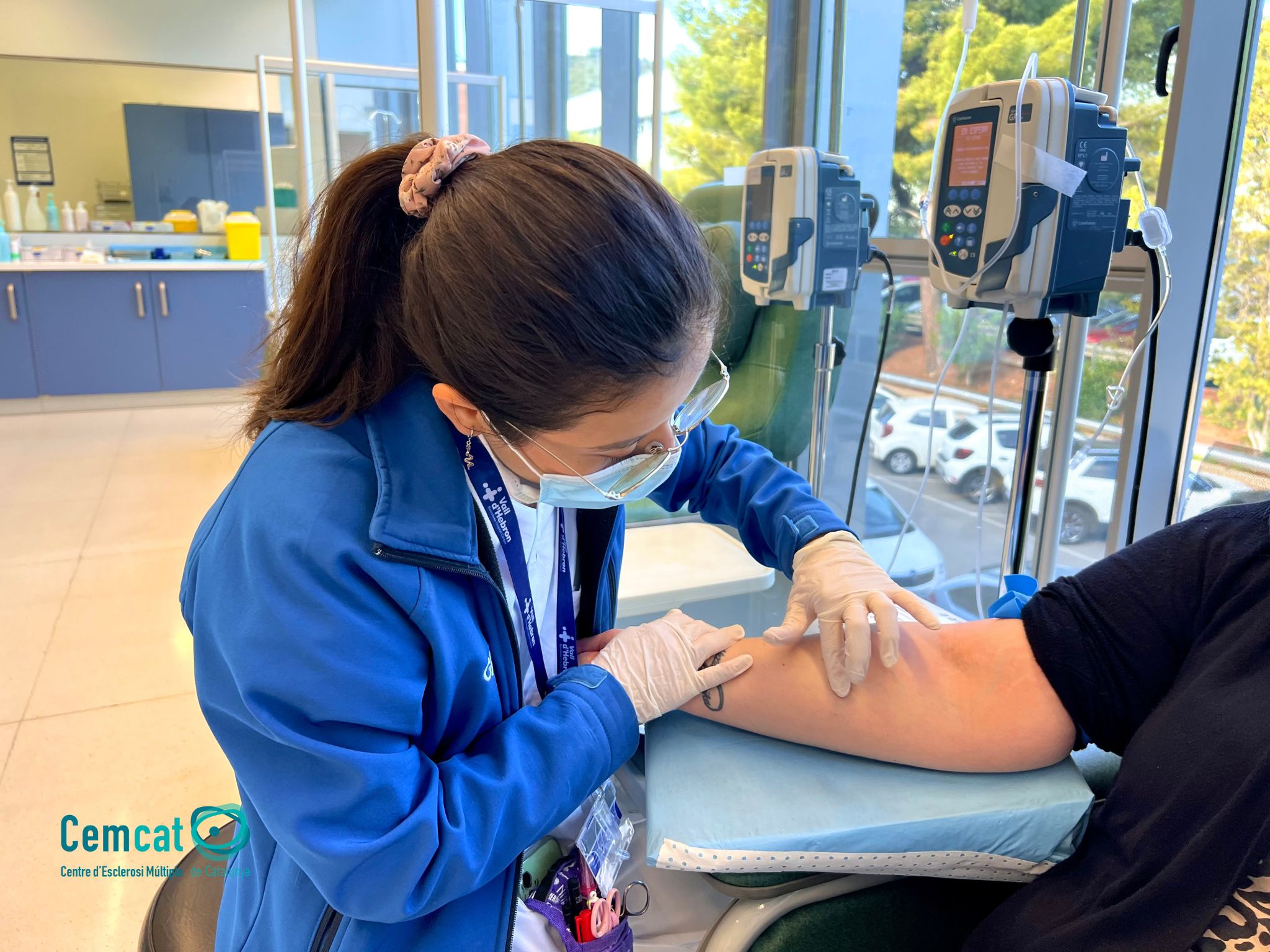
This accessibility that surrounds the figure of the nurse is what has allowed patients to break the stigmas and taboos that surround the disease and weave a relationship based on a climate of trust, safety, warmth and understanding that allows them to face and manage the disease symptoms and maintain health-related quality of life as best as possible for many years while maintaining individual independence.




